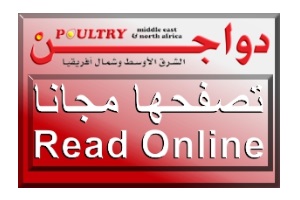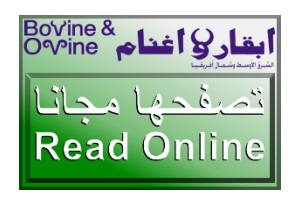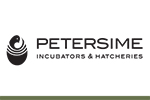![]() ISOQUINOLINE ALKALOIDS SUPPORT BROILERS UNDER HEAT STRESS
ISOQUINOLINE ALKALOIDS SUPPORT BROILERS UNDER HEAT STRESS
by Dr. Anja Pastor, Phytobiotics Futterzusatzstoffe GmbH, Germany
Modern, highly productive poultry breeds are susceptible to heat stress. This, in combination with rising global temperatures, poses a challenge for the poultry industry.
Plant-based nutritional solutions provide the opportunity to stabilize broiler chickens during heat stress periods.
The fast growth rate of modern broiler breeds offers many advantages – for instance, a resource-friendly production due to an improved feed conversion ratio (FCR) and shorter production periods. The downside of this boosted metabolic activity is a minimized tolerance to heat stress. This is further eroded by the fact that poultry per se are susceptible to high temperatures due a high body mass to body surface area ratio, as well as a lack of sweat glands on the skin and their insulating feathers.
Heat stress is a physiological response to the combined effect of high ambient temperature and the relative humidity of the air. Heat stress occurs if poultry are outside their thermoneutral zone and struggle to regulate their body temperature. Birds that are too warm will increase their respiratory rate and divert blood away from the gastrointestinal tract towards their skin, comb, and wattles in an attempt to cool down. They can also reduce their feed intake by as much as 20% (Quinteiro-Filho et al., 2010). Clearly, this can have a detrimental effect on performance.
Furthermore, heat stress also has adverse consequences for meat quality and even increases the risk of poultry becoming contaminated with food-borne pathogens, which represents an important food safety issue, so the effective management of this environmental challenge is becoming increasingly important.
Better insulation and ventilation of poultry houses can help to mitigate the undesirable physiological effects of heat stress, but building modifications can be prohibitively expensive. Depending on the local situation, a variety of remedial nutritional steps can also be taken. These include ensuring an optimum drinking water temperature, the use of highly digestible feed proteins, choosing the right anticoccidial programme, and the use of appropriate electrolytes and/or antioxidants – but often these can be relatively ineffective tweaks that won’t necessarily address one of the fundamental physiological effects of heat stress in poultry.
Heat stress compromises intestinal integrity
There is a strong link between heat stress and intestinal inflammation with far reaching consequences for intestinal barrier function. Suboptimal nutrient uptake and poor performance are the consequences on one hand, but, more alarmingly, also a heightened risk of bacterial translocation from the intestinal lumen into the bloodstream. Consequently, nutritional intervention strategies targeting inflammation management are promising tools to support broiler chickens during heat stress periods.
For example, plant-derived isoquinoline alkaloids (IQs, provided as Sangrovit®) have been shown to boost growth in broilers thanks to their anti-inflammatory properties. Therefore, their ability and potential of Sangrovit® to mitigate intestinal inflammation caused by heat stress were assessed in two studies.
Studies under artificially induced and naturally occurring heat stress conditions
Table 1 provides an overview about the general conditions of the trial set-ups.
Table 1: Basic information about the trial set-ups
|
Tohoku University, Japan |
Prince of Songkla University, Thailand |
|
|
Sex and breed |
Male Ross 308 |
Male Ross 308 |
|
Groups |
1) Negative Control 2) Sangrovit® |
1) Negative Control 2) Sangrovit® |
|
Number of animals in total |
360 |
480 |
|
Replicates per treatment |
6 |
8 |
|
Heat stress conditions |
Artificially induced Day 0 – 14: thermoneutral Day 14 – 42: 33°C / 42-64 % RH |
Naturally occurring Day 0 - 42 |
|
Assessment of |
day 42 |
day 35 |
In both trials, significantly reduced ileal gene expression levels of iNOS (a key mediator of inflammation) was observed in Sangrovit®-fed birds, indicating a positive impact of IQs on heat stress-induced inflammation. Fluorescein isothiocyanate (FITC)-dextran in blood plasma was used to evaluate gut integrity. High levels of FITC-dextran indicate an impaired gut barrier function. Birds fed the diets containing Sangrovit® had lower levels of FITC-dextran, indicating a better maintenance of gut integrity (figures 1a and 1b).

As another consequence of inflammation management, feed intake could be stabilized in IQs-supplemented birds. Subsequently, performance was improved in birds on the IQs diets (figure 2).

This trial work highlights the benefits of proven plant-based feed additives to mitigate the on-going challenge of heat stress in global broiler production.
Take-home message:
Modern, fast-growing poultry genotypes exhibit a high metabolic activity, which increases heat production. Broilers are particularly susceptible to heat stress problems, especially in the summer months. Nutritional solutions, based on science, are keeping pace with this issue. Here especially, isoquinoline alkaloids provided in the form of Sangrovit® at 100 ppm offer a tool to manage and mitigate this growing challenge.


















